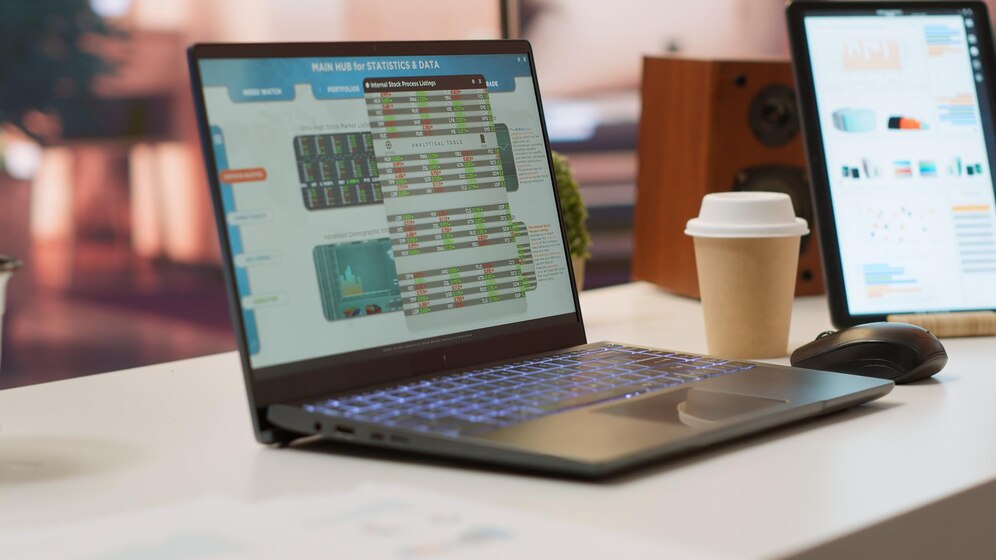At Protea Financial, we understand that the financial landscape for wineries and vineyards can be as varied and nuanced as the wines you produce. While there’s often a desire for a straightforward, one-size-fits-all accounting solution, the reality is that your unique operational complexities might necessitate a more flexible strategy.
That’s where a hybrid approach to accounting comes into play. Take the time to explore what a hybrid accounting approach entails, why it might be the right fit for your business, and how our experts can help you navigate these intricate scenarios.
Recognizing the Limitations of a Single Accounting Method
Many businesses initially adopt a single accounting method, whether it’s cash-basis, accrual-basis, or one of a few specific inventory costing methods. While these methods offer structure and consistency, they may not always perfectly capture the economic reality of your winery or vineyard, especially as you grow and your operations become more sophisticated.
For instance, a smaller vineyard might start with cash-basis accounting, recognizing revenue and expenses when cash changes hands. This is simple and can be effective in the early stages. However, as the vineyard expands, invests in aging inventory, or offers credit terms to distributors, the cash-basis method might not accurately reflect profitability or the true value of assets and liabilities.
Similarly, while accrual-basis accounting provides a more comprehensive view by recognizing revenue when earned and expenses when incurred, it can sometimes feel disconnected from immediate cash flow realities, which are vital for managing day-to-day operations.
Understanding the Hybrid Accounting Approach
A hybrid accounting approach strategically combines elements of different accounting methods to provide a more accurate and insightful financial picture tailored to your specific business needs. It’s about leveraging the strengths of various methods to overcome the limitations of relying on just one.
For example, a winery might choose to use the accrual method for recognizing revenue from wine sales and tracking inventory costs (providing a clear view of profitability and asset valuation), while simultaneously using the cash method for tracking certain operating expenses to maintain a close eye on immediate cash outflows. Another scenario might involve using a specific identification method for high-value, limited-production wines for precise cost tracking, while employing the weighted-average method for larger volume wines to simplify calculations.

Scenarios Where a Hybrid Approach Can Be Beneficial for Wineries and Vineyards
Several complex accounting scenarios within the wine industry can make a hybrid approach particularly advantageous. Here are some of the most common.
Managing Significant Inventory with Long Aging Cycles
Wineries often hold substantial inventory that appreciates in value over long aging periods. Using the accrual method for inventory costing provides a more accurate representation of this asset’s value on the balance sheet.
However, for managing immediate cash flow related to production expenses, tracking cash outlays might be more relevant. A hybrid approach could involve accrual accounting for inventory valuation and cash-based tracking for certain production costs.
Balancing Cash Flow and Profitability Recognition
Vineyards with long growing cycles and seasonal revenue streams might find it challenging to manage cash flow effectively under a strict accrual system. A hybrid approach could involve using accrual accounting for recognizing revenue when grapes are sold or wine is shipped, while tracking certain operational expenses on a cash basis to monitor immediate financial obligations.
Handling Diverse Revenue Streams
Wineries commonly have multiple revenue streams, including:
- Direct-to-consumer sales
- Tasting rooms
- Wine clubs
- Online sales
- Wholesale distribution
- Event hosting
The timing and nature of these revenue streams can vary significantly. A hybrid approach could allow for recognizing DTC revenue on a cash basis for immediate cash flow tracking while using accrual accounting for larger wholesale transactions with extended payment terms to accurately reflect earned revenue.
Tracking Specific, High-Value Inventory
For wineries producing limited-edition or highly collectible wines, using the specific identification method for inventory costing under an accrual framework provides the most accurate cost tracking and profitability analysis for these premium items. However, for bulk wine or standard production, a weighted-average or FIFO method under accrual accounting might be more practical.
Managing Capital-Intensive Operations with Financing
Wineries and vineyards often have significant investments in land, buildings, and equipment, often financed through loans. While the accrual method accurately reflects depreciation and interest expenses, tracking the actual cash outlays for loan repayments and capital expenditures on a cash basis provides a crucial perspective on cash flow management.
Implementing a Hybrid Approach: Key Considerations
Implementing a hybrid accounting approach using both cash and accrual accounting requires careful planning and a thorough understanding of both your business operations and accounting principles. Key considerations include:
- Consistency: While combining methods, it’s crucial to apply each method consistently to the specific accounts or transactions you’ve designated. Inconsistent application can lead to inaccurate financial reporting and potential compliance issues.
- Clarity and Documentation: Clearly document which accounting methods are being used for different aspects of your business and the rationale behind these choices. This ensures transparency and facilitates accurate reporting.
- Complexity: A hybrid approach can inherently be more complex to manage and track than a single method. Ensure your accounting systems and expertise are equipped to handle this complexity.
- Compliance: While a hybrid approach can be beneficial, it’s essential to ensure that your chosen combination of methods complies with all relevant accounting standards and tax regulations.

How Protea Financial Can Help You Navigate the Hybrid Landscape
At Protea Financial, we have extensive experience working with wineries and vineyards of all sizes, each with its own unique financial complexities. We can help you:
- Analyze your specific business operations and identify areas where a hybrid approach might be beneficial.
- Develop a tailored hybrid strategy that aligns with your business goals and reporting needs.
- Implement and manage your hybrid accounting system effectively, ensuring accuracy and compliance.
- Provide ongoing support and guidance to adapt your accounting methods as your business evolves.
Navigating complex accounting scenarios doesn’t have to be a daunting task. By understanding the power and flexibility of a hybrid approach, you can gain a more accurate and insightful view of your winery or vineyard’s financial health. Contact Protea Financial today, and let our team help you craft an accounting strategy that truly reflects the unique intricacies of your business, setting you up for long-term financial success.



